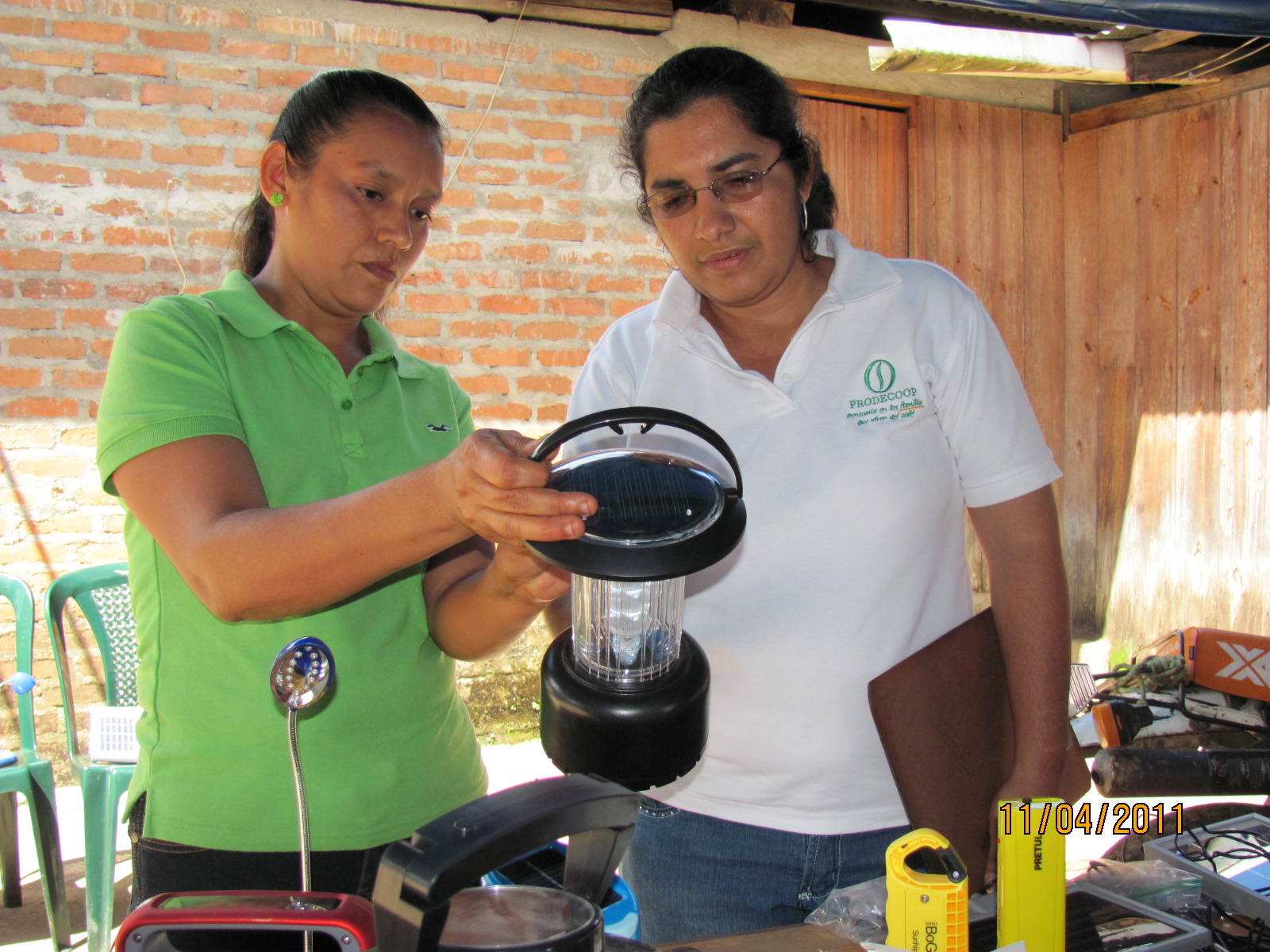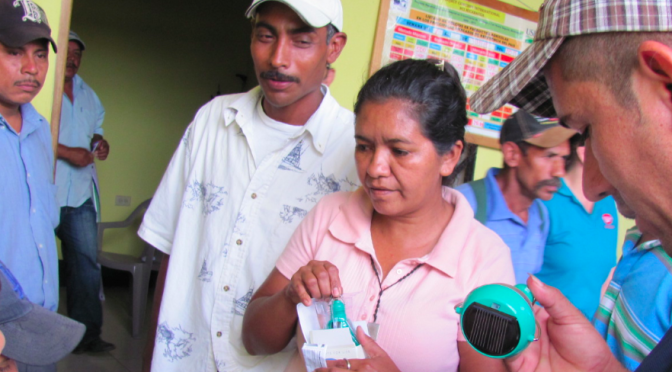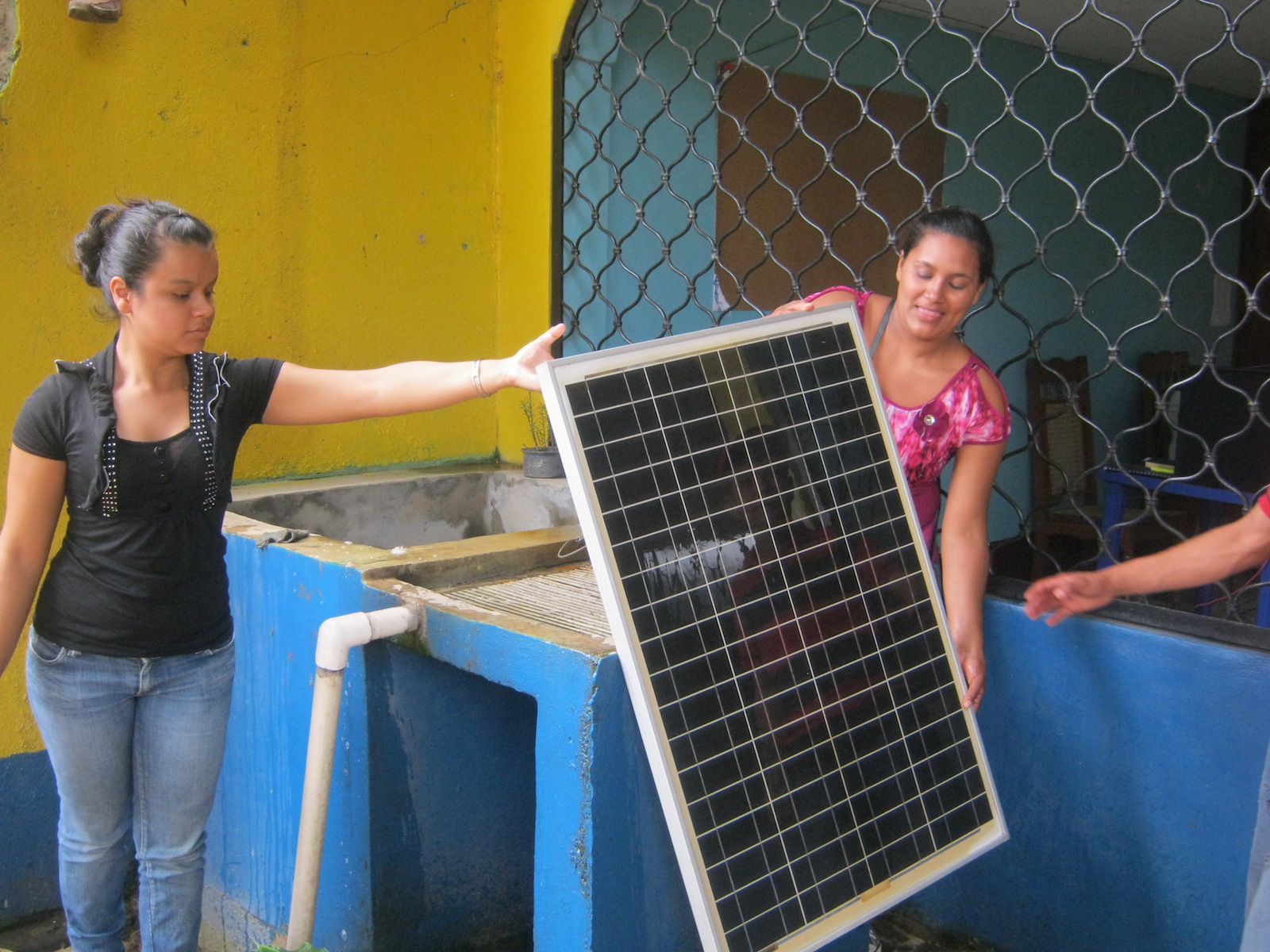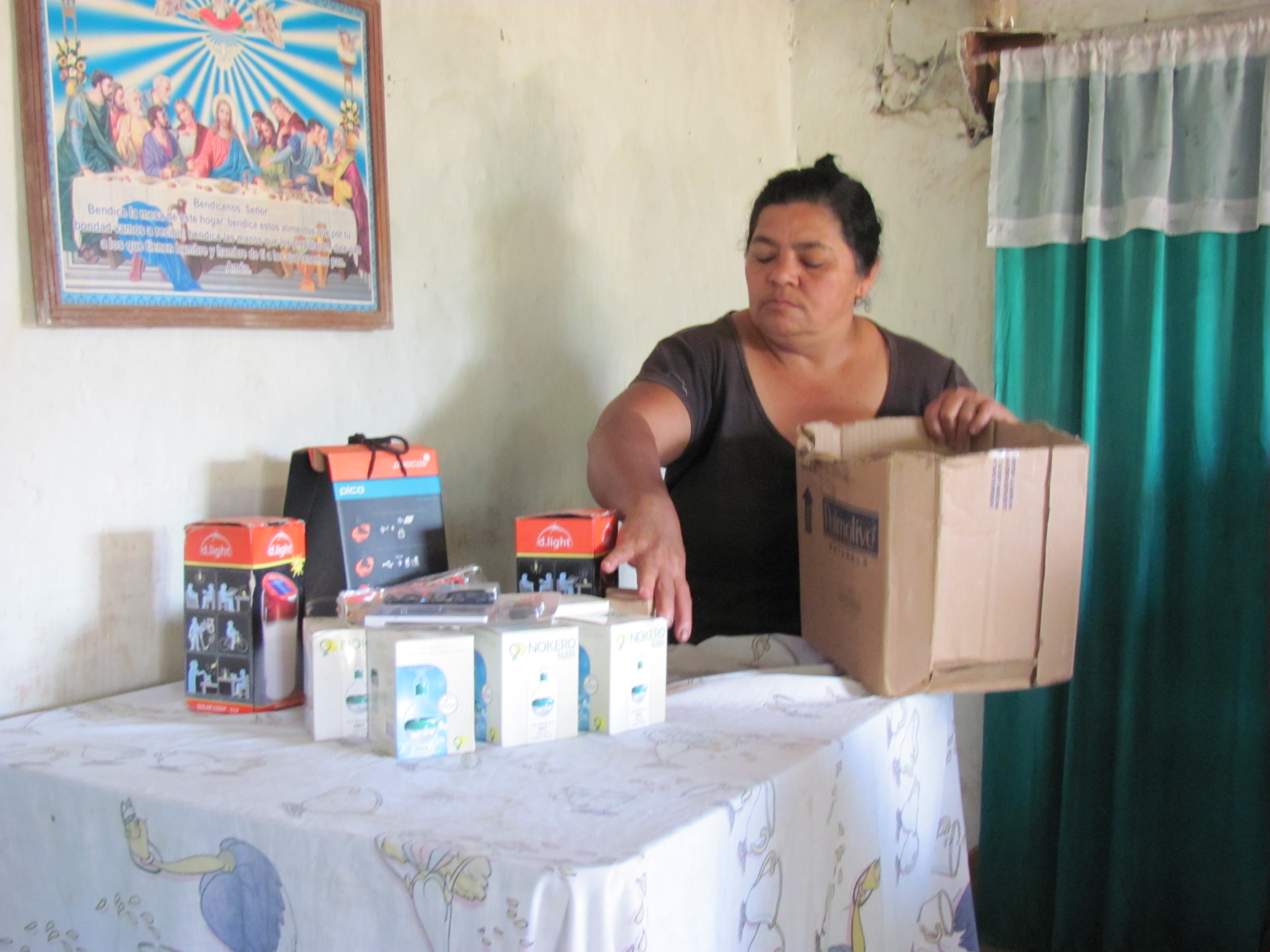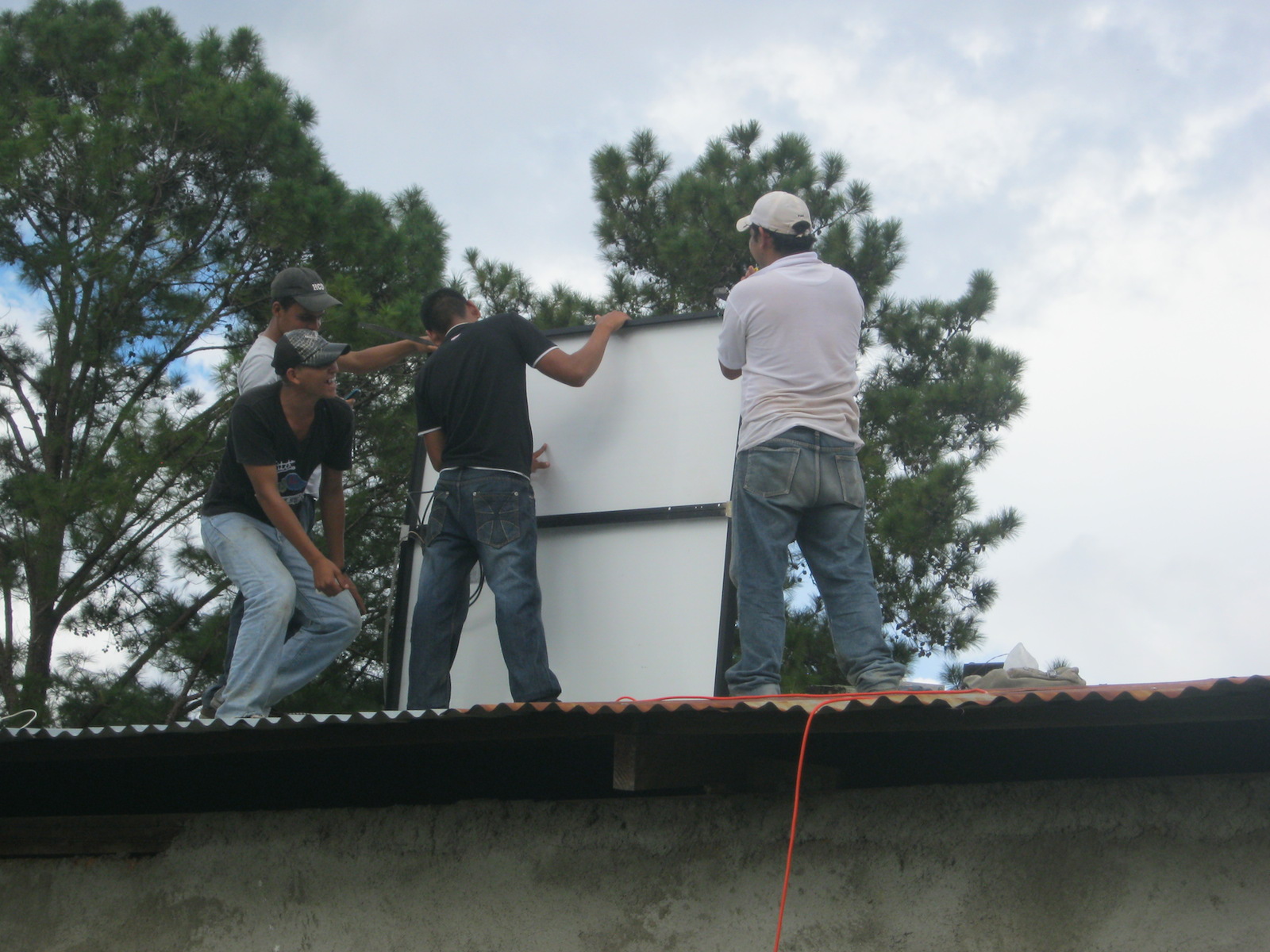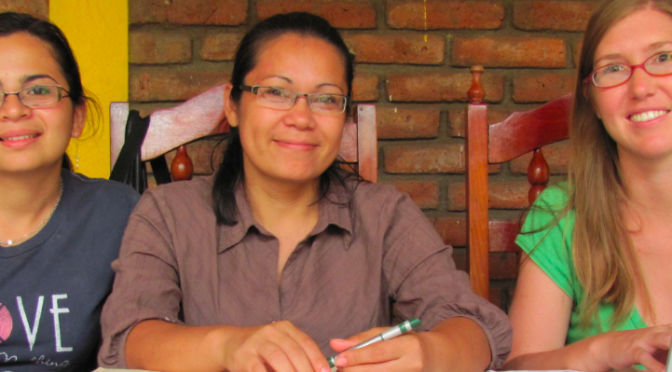IDEAS has trained 76 “micro-technicians,” who are youth and women to be trained formally in how to diagnose the size, install & repair the solar roof-top systems. This provides them new employment while providing a local repair person for the hundreds of systems that have been installed but not gotten repair because the technicians live in faraway cities.
The cooperatives have been excited about youth being able to sell their services in a high tech field. This is in contrast to so many youth that have had to migrate from the coffee communities. The coops have helped with the selection and follow-up of the students.
While the students have classroom work to help them thoroughly understand solar energy and solar system problem solving, they also have practical installation and repair work as part of the course. This also involves field trips to visit solar installations.
TecAp uses trained youth to install solar systems that are sold by the women microfranchisees. As the system grew, there have been women microfranchisees selling a neighbor a roof-top system and a youth in her community having been trained to install it.
Please consider making a donation to IDEAS to provide funds needed to assist with the costs of continuing to educate youth in more sophisticated applications of renewable energy like refrigeration, pumping of water, and other energy uses in Nicaragua.
IDEAS ha recibido fondos de la Fundación IEEE para entrenar a un conjunto de “micro – técnicos,” que son los jóvenes y las mujeres para ser entrenados formalmente en cómo diagnosticar el tamaño, la instalación y la reparación de los sistemas solares de techo. Esto les proporcionará nuevos puestos de trabajo al tiempo que proporciona a un técnico local para los cientos de sistemas que se han instalado, pero que no han sido reparados porque los técnicos viven en ciudades lejanas.
Las cooperativas están entusiasmadas con la posibilidad de que los jóvenes puedan vender sus servicios en un campo de alta tecnología. Esto estaría en contraste con tantos jóvenes que han tenido que emigrar de las comunidades cafetaleras. Las cooperativas están ayudando con la selección de los estudiantes.
Mientras que los estudiantes tienen trabajo en el aula para ayudar a comprender a fondo la energía solar y los sistemas solares, también tienen instalación práctica y reparación como parte del curso. Esto también implicará viajes de campo para visitar los sitios de las instalaciones solares.
TecAp será capaz de utilizar algunos de los jóvenes capacitados para instalar sistemas solares que son vendidos por las microfranquiciadas mujeres. A medida que el sistema crece, habrá mujeres microfranquiciadas vendiendo sistemas solares de techo a los vecinos, y en su comunidad habrá un/a joven entrenado/a para instalarlo.
El curso se llevará a cabo en el segundo semestre de 2013. Por favor considere hacer una donación a IDEAS para proporcionar los fondos necesarios para ayudar con los costos de los cursos.
IDEAS tiene previsto celebrar un curso similar el próximo año.
